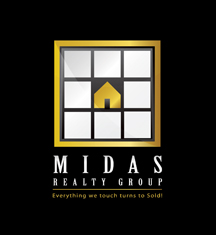
-
Home Buying FAQ- Frequent Asked Questions
1. Why must I be pre-approved before you will perform a search? Many Buyers will not consider an offer from a potential buyer that is not pre-approved- because they do not want to risk taking their house off of the market only to have an escrow fall
 through. It is not unusual in today’s market for homes to be sold shortly after being put on the market- sometimes, it has taken less than 24 hours for an offer to be presented and accepted! Imagine this: recently a local home (fixer upper) with an appraised value at $330,00 sold for $250,000 to a buyer that was already pre-approved and offered a seven day escrow! The owner did not want to put any money into the home to make improvements, first time home buyers were looking for a deal- and the quick escrow made the whole thing fly!
through. It is not unusual in today’s market for homes to be sold shortly after being put on the market- sometimes, it has taken less than 24 hours for an offer to be presented and accepted! Imagine this: recently a local home (fixer upper) with an appraised value at $330,00 sold for $250,000 to a buyer that was already pre-approved and offered a seven day escrow! The owner did not want to put any money into the home to make improvements, first time home buyers were looking for a deal- and the quick escrow made the whole thing fly!2. Why don’t you just show a list homes for sale? We provide online access to MLS listings on our website for you to view 24/7 Potential home buyers may search this particular database for available homes, but Agents will have access to additional “private” sources and “hotlists” not yet published.
3. Is there any obligation to getting pre-approved? You are under no obligation once you complete the pre-approval form. A licensed loan officer will evaluate your information and contact you with the analysis based upon the information you have provided. You decide whether to proceed- and at what pace.
4. How do I get pre-approved? The first step is to complete an online easy application with as much information as possible. We do not request social security information and we do not run your credit until we have a chance to speak with you. After we determine the amount of mortgage for which you may qualify, a loan package is either mailed to your home or delivered by one of our couriers. Simply complete the forms in the package, gather the documents requested on the checklist, and get the package back to our office either by mail, our courier, or by dropping by. When qualified, you will get receive a pre-approval letter within 24-48 hours!
5. What if I am already pre-approved with another lender? Indicate that you are pre-approved on your House Hunter form and your personal Buyer’s Agent will contact you and will begin working with you to search for your home.
6. Can we visit your office to apply? Yes! Our office is located in Anaheim, CA, and we welcome clients to stop in. To expedite the process, give us a call first and we’ll give you a list of the paperwork we need in order to pre-qualify you. If you bring all of your paperwork with you, we may be able to prepare a pre-approval letter for you the same day!
7. I’m not sure I’m ready to buy- or that I can qualify. What should I do? Give us a call toll-free (800) 546-2289. We are always happy to answer questions or “run your numbers” for you over the phone and tell you the amount for which you may qualify.
8. How much money will I have to come up with to buy a home? Well, that depends on a number of factors, including the cost of the house and the type of mortgage you get. In general, you need to come up with enough money to cover three costs: earnest money – the deposit you make on the home when you submit your offer, to prove to the seller that you are serious about wanting to buy the house; the down payment, a percentage of the cost of the home that you must pay when you go to settlement; and closing costs, the costs associated with processing the paperwork to buy a house. When you make an offer on a home, you’re real estate broker will put your earnest money into an escrow account. If the offer is accepted, your earnest money will be applied to the down payment or closing costs. If your offer is not accepted, your money will be returned to you. The amount of your earnest money varies. If you buy a HUD home, for example, your deposit generally will range from $500 – $2,000. The more money you can put into your down payment, the lower your mortgage payments will be. Some types of loans require 10-20% of the purchase price. That’s why many first-time home buyers turn to HUD’s FHA for help. FHA loans require only 3.5% down – and sometimes less. Closing costs – which you will pay at settlement – average 3-4% of the price of your home. These costs cover various fees your lender charges and other processing expenses. When you apply for your loan, your lender will give you an estimate of the closing costs, so you won’t be caught by surprise. If you buy a HUD home, HUD may pay many of your closing costs.
9. How do I know if I can get a loan? Use our simple online mortgage calculators to see how much mortgage you could pay – that’s a good start. If the amount you can afford is significantly less than the cost of homes that interest you, then you might want to wait awhile longer. They will help you evaluate your loan potential. A broker will know what kinds of mortgages the lenders are offering and can help you choose a lender with a program that might be right for you. Another good idea is to get pre-qualified and possibly pre-approved for a loan. That means you apply for a mortgage before you actually start looking for a home. Then you’ll know exactly how much you can afford to spend, and it will speed the process once you do find the home of your dreams.
10. In addition to the mortgage payment, what other costs do I need to consider? Well, of course you’ll have your monthly utilities. If your utilities have been covered in your rent, this may be new for you. Your real estate broker will be able to help you get information from the seller on how much utilities normally cost. In addition, you might have homeowner association or condo association dues. You’ll definitely have property taxes, and you also may have city or county taxes. Taxes normally are rolled into your mortgage payment. Again, your broker will be able to help you anticipate these costs.
11- So what will my mortgage cover? Most loans have 4 parts: principal: the repayment of the amount you actually borrowed; interest: payment to the lender for the money you have borrowed; homeowners insurance: a monthly amount to insure the property against loss from fire, smoke, theft, and other hazards required by most lenders; and property taxes: the annual city/county taxes assessed on your property, divided by the number of mortgage payments you make in a year. Most loans are for 30 years, although 15 year loans are available, too. During the life of the loan, you’ll pay far more in interest than you will in principal – sometimes two or three times more! Because of the way loans are structured, in the first years you’ll be paying mostly interest in your monthly payments. In the final years, you’ll be paying mostly principal.
12. What do I need to take with me when I apply for a mortgage? Good question! If you have everything with you when you visit your lender, you’ll save a good deal of time. You should have: 1) social security numbers for both your and your spouse, if both of you are applying for the loan; 2) copies of your checking and savings account statements for the past 6 months; 3) evidence of any other assets like bonds or stocks; 4) a recent paycheck stub detailing your earnings; 5) a list of all credit card accounts and the approximate monthly amounts owed on each; 6) a list of account numbers and balances due on outstanding loans, such as car loans; 7) copies of your last 2 years’ income tax statements; and 8) the name and address of someone who can verify your employment. Depending on your lender, you may be asked for other information.
13. I know there are lots of types of mortgages – how do I know which one is best for me? You’re right – there are many types of mortgages, and the more you know about them before you start, the better. Most people use a fixed-rate mortgage. In a fixed rate mortgage, your interest rate stays the same for the term of the mortgage, which normally is 30 years. The advantage of a fixed-rate mortgage is that you always know exactly how much your mortgage payment will be, and you can plan for it. Another kind of mortgage is an Adjustable Rate Mortgage (ARM). With this kind of mortgage, your interest rate and monthly payments usually start lower than a fixed rate mortgage. But your rate and payment can change either up or down, as often as once or twice a year. The adjustment is tied to a financial index, such as the U.S. Treasury Securities index. The advantage of an ARM is that you may be able to afford a more expensive home because your initial interest rate will be lower. There are several government mortgage programs that might interest you, too. Most people have heard of FHA mortgages. FHA doesn’t actually make loans. Instead, it insures loans so that if buyers default for some reason, the lenders will get their money. This encourages lenders to give mortgages to people who might not otherwise qualify for a loan.
14. When I find the home I want, how much should I offer? Again, your real estate broker can help you here. But there are several things you should consider: 1) is the asking price in line with prices of similar homes in the area? 2) Is the home in good condition or will you have to spend a substantial amount of money making it the way you want it? You probably want to get a professional home inspection before you make your offer. Your real estate broker can help you arrange one. 3) How long has the home been on the market? If it’s been for sale for awhile, the seller may be more eager to accept a lower offer. 4) How much mortgage will be required? Make sure you really can afford whatever offer you make. 5) How much do you really want the home? The closer you are to the asking price, the more likely your offer will be accepted. In some cases, you may even want to offer more than the asking price, if you know you are competing with others for the house.
15. What if my offer is rejected? They often are! But don’t let that stop you. Now you begin negotiating. Your broker will help you. You may have to offer more money, but you may ask the seller to cover some or all of your closing costs or to make repairs that would not normally be expected. Often, negotiations on a price go back and forth several times before a deal is made. Just remember – don’t get so caught up in negotiations that you lose sight of what you really want and can afford!
16. So what will happen at closing? Basically, you’ll sit at a table with your broker, the broker for the seller, probably the seller, and a closing agent. The closing agent will have a stack of papers for you and the seller to sign. While he or she will give you a basic explanation of each paper, you may want to take the time to read each one and/or consult with your agent to make sure you know exactly what you’re signing. After all, this is a large amount of money you’re committing to pay for a lot of years! Before you go to closing, your lender is required to give you a booklet explaining the closing costs, a “good faith estimate” of how much cash you’ll have to supply at closing, and a list of documents you’ll need at closing. If you don’t get those items, be sure to call your lender BEFORE you go to closing. Don’t hesitate to ask questions.
e only. Subject to expiration. Contact Midas Realty Group for details. **
* The “Midas HOME BUYER Rebate” only applies to homes and properties when the purchase price is at least $200,000. For any home sale with a final sales price (excluding closing costs) of $200,000 or more (AND WHERE MIDAS REALTY GROUP DOES NOT REPRESENT A SELLER AND / OR A LIEN HOLDER OF A PROPERTY), where Midas Realty Group has acted as their sole and exclusive agent in the purchase of real estate, Midas Realty Group will rebate to the buyer 1/2 (one half) of the cooperating broker commission or fee (up to 1.5% of the final sales price) paid to MIDAS REALTY GROUP at the at the successful settlement/completion of escrow. REBATE GOOD TOWARD CLOSING COSTS, RATE BUY DOWN, OR LENDER APPROVED COSTS, For any home sale with a final sales price (excluding closing costs) of less than $200,000 where Midas Realty Group has acted as their sole and exclusive agent in the purchase of real estate, Midas Realty Group will rebate to the buyer a flat rate of $500. at the successful settlement/completion of escrow. Void where prohibited by state OR FEDERAL law. THE amount of the rebate may be limited by the guidelines of your lender. please consult your lender to determine the amount of allowable rebate.
**** This offer is for a limited time only. Subject to expiration. Contact Midas Realty Group for details. ****

